Ferrets are fun and adorable little pets that make excellent companions. They are relatively easy to care for, live long and healthy lives, and have minimal care requirements.
Ferrets can make deeply bonded attachments to other animals and humans and are popular pets worldwide.
Ferrets are considered hypoallergenic pets. The ferret can still shed, but minimal shedding does not generally irritate the sinuses as cat or dog fur might.
While you may not be allergic to ferret fur, it is possible to have an allergy to ferret urine, feces, or bedding.
However, it is still possible to be allergic to ferrets. Most commonly, people who suffer from ferret allergies are allergic to urine or feces and, on occasion, the bedding material used in the ferret cage.
Male ferrets are more likely to cause allergies in people. If you are allergic to cats, there is a higher likelihood that you may also be allergic to ferrets.
Luckily, most over-the-counter allergy medication can help combat symptoms associated with ferret allergies.
Do Ferrets Shed?
 Usually, when an animal is considered hypoallergenic, it is because it only minimally shed and has limited dander.
Usually, when an animal is considered hypoallergenic, it is because it only minimally shed and has limited dander.
While this is undoubtedly true for ferrets, and they are largely considered hypoallergenic pets, these animals can shed a minimal amount.
Because ferrets shed such a small amount, there is usually not enough hair to create an allergic reaction in a human.
If you notice your ferret is shedding, it may indicate a more significant issue. Ferrets have been known to have alopecia, a condition that causes hair loss in people and animals.
If you notice your ferret is starting to look patchy, it may be due to this condition.
What Can I Do To Limit Ferret Shedding?
 Although shedding is minimal, some fur will come off your ferret periodically. To limit the amount of fur your ferret sheds, you can:
Although shedding is minimal, some fur will come off your ferret periodically. To limit the amount of fur your ferret sheds, you can:
- Monitor Diet – Ferrets may have sensitivities to certain foods that can cause an increase in the amount of fur shed. Be sure to give your ferret a good diet with plenty of rich proteins like chicken and turkey.
- Brush – Regularly brush your ferret to remove any loose fur before it becomes an issue in your home.
- Clean Habitat – You’ll want to regularly clean your ferret’s habitat to remove any loose fur in the cage. Take care to launder soft materials in their habitats like blankets, hammocks, and soft tunnels. At a minimum, clean the enclosure entirely once per week.
- Limit Bathing – Ferrets are naturally clean animals and rarely require a bath. Keep baths to a minimum, only once or twice per year. Bathing your ferret too often can cause dry skin, which can cause your ferret to shed more than usual.
Can People Be Allergic To Ferrets?
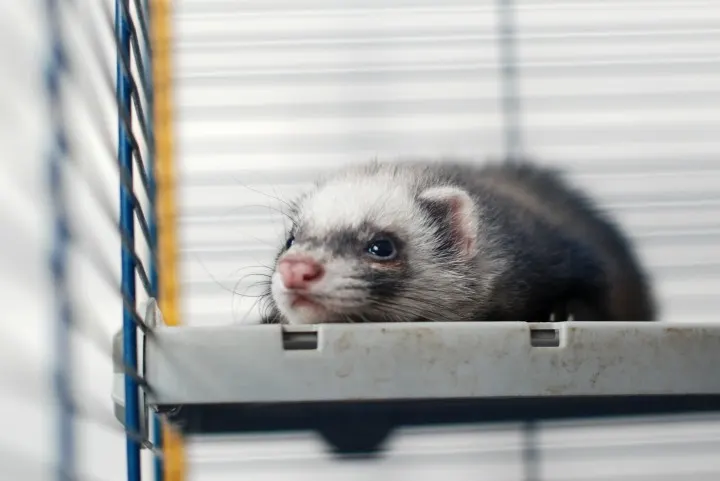 While the fur and dander from ferrets rarely cause allergic reactions in people, there are known ferret allergies.
While the fur and dander from ferrets rarely cause allergic reactions in people, there are known ferret allergies.
Recent studies have found that ferret allergies in people are usually connected to the urine, feces, or bedding material used in the ferret habitat.
Male ferrets tend to produce more allergic reactions compared to females.
Ferrets allergies are mild though they can be troubling for people who have asthma or hay fever. People who are allergic to cats may have a high likelihood of also being allergic to ferrets.
Usually, simple over-the-counter allergy medication is enough to control and combat ferret allergies.
Are Ferrets Clean Animals?
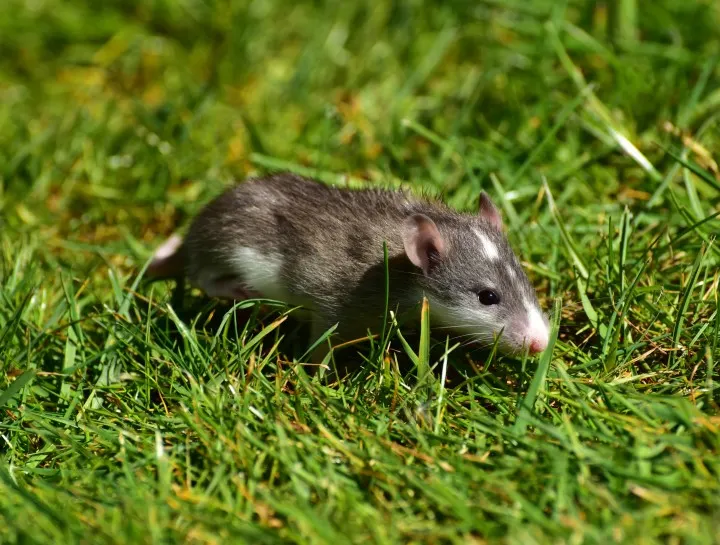 Although many people associate ferrets with being smelly and unclean, the truth is that ferrets are remarkably clean animals.
Although many people associate ferrets with being smelly and unclean, the truth is that ferrets are remarkably clean animals.
A more significant portion of a ferret’s day is dedicated to self-grooming to remove dander and loose hair from the skin, much like a cat.
Not only does this help keep your ferret healthy, but it helps to reduce the amount of already limited shedding.
It may be tempting to wash your ferret, but ferrets will rarely need a bath, and bathing your ferret too often could strip the natural oils from the fur they need to stay healthy.
Do Ferrets Smell?
 Even though ferrets are remarkably clean animals, there is a smell often associated with this little pet. Some people will notice a more pungent ferret odor than others.
Even though ferrets are remarkably clean animals, there is a smell often associated with this little pet. Some people will notice a more pungent ferret odor than others.
A ferret smell may be unbearable to some, while others may barely notice a smell coming from the ferret itself.
Two different areas of the ferret’s body will produce a smell. The body is covered with an oil that can smell bad, especially if the ferret is in heat.
This smell can be pretty intense and can worsen if your ferret has naturally oily fur. Further, a different smell comes from the anal glands.
When activated, the anal glands can produce a strong musk odor similar to a skunk. This occurrence usually only happens when the ferret is scared or in danger.
What Are Other Hypoallergenic Small Pets?
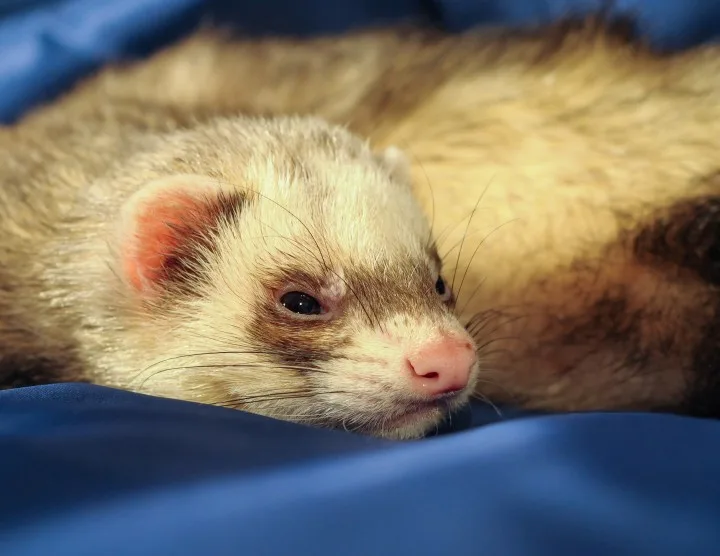 If you suffer from allergies, consider a hypoallergenic pet as the best way to live comfortably at home with a companion.
If you suffer from allergies, consider a hypoallergenic pet as the best way to live comfortably at home with a companion.
Although a ferret may be an excellent choice for allergy sufferers, it may not be the best pet for all families.
Several other hypoallergenic pets can make excellent companions. Some of the best pets for allergy sufferers include:
- Small Rodents – Consider adding hamsters, gerbils, or guinea pigs to your family. Often, allergens are caused by shedding and dander from the animal, but these small rodents rarely shed and don’t produce a large amount of dander. Plus, they’re small and self-contained in their enclosure, minimizing the spread of the little fur they shed.
- Chinchillas – Although these large rodents are best for older children and adults, chinchillas are considered hypoallergenic. They are clever, easy to care for, and incredibly long-lived.
- Reptiles – Because reptiles don’t have any fur or dander, they are truly considered hypoallergenic. Consider a snake or lizard as a loving addition to your family.
- Amphibians – Adding an amphibian to your family is an excellent choice for a hypoallergenic pet. A turtle or even a dart frog can make excellent, easy to care for pets. Plus, many amphibians are incredibly long-lived.
- Birds – Although birds may be more labor-intensive to care for, they make wonderful hypoallergenic pets. Birds are intelligent and fun to watch, and many species make excellent and loving pets.
Are Ferrets A Good Pet for Kids?
 Getting a pet ferret is a great choice for people who suffer from allergies because this animal is mostly considered hypoallergenic. However, a ferret may not be the best idea for young children.
Getting a pet ferret is a great choice for people who suffer from allergies because this animal is mostly considered hypoallergenic. However, a ferret may not be the best idea for young children.
Ferrets are weasels, which means if they are improperly handled, they can scratch or bite. Further, ferrets like to adventure and can be relatively mischievous.
Expect a ferret to “borrow” or “steal” errant clothing, hair ties, socks, or toys, which could be troublesome for a small child. Ferrets require a pretty significant amount of care which may be too intensive for a young child.
Plus, ferrets can be escape artists, so a forgetful child leaving a ferret enclosure unlocked or open could lead to a tragic end for a lost pet. In general, only consider adopting a pet ferret if your kids are over the age of 12.
Related Questions
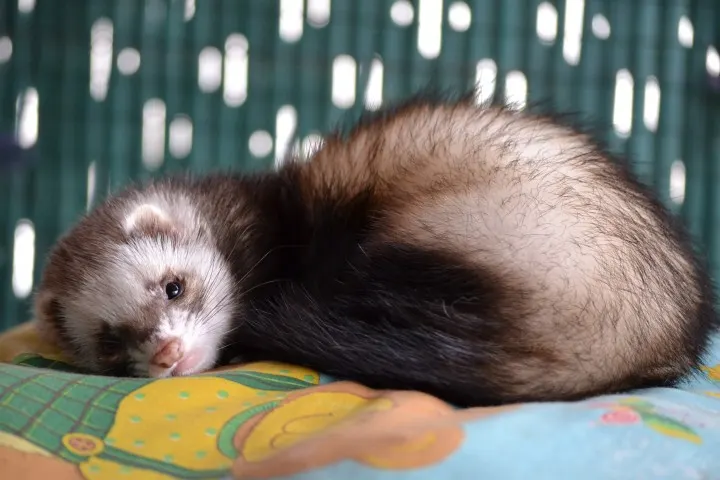 How long do ferrets live?
How long do ferrets live?
Before committing to owning a relatively hypoallergenic ferret as a pet, you should consider its long lifespan. Usually, a ferret will live between 5 and 7 years.
However, with the right care, it is not uncommon to have a ferret live much longer. The oldest ferret on record reached the ripe old age of 14 years!
Be sure that you have not only the time ready to dedicate to a long-lived pet but also the financial resources to provide food, housing, and necessary veterinary care to a sick or aging ferret.
Do ferrets do better in pairs?
In general, ferrets are highly social animals that like to have the company of other ferrets or people.
Although a ferret will generally be happier with a companion, it really depends on the individual animal’s personality. While most ferrets are delighted with a friend, other ferrets will do just fine living solo.
Before choosing to own one or two ferrets, think about your lifestyle and how much time you’ll be able to dedicate to caring for and playing with your pet.
If you live a hectic lifestyle, getting two ferrets makes sense. With limited available time to play with your ferret, having two pets that can entertain each other will keep your ferret happier and healthier.
If you have plenty of time to spend raising your ferret, consider just owning a solo pet, but be ready to provide at least 2 hours per day spent playing outside the ferret enclosure.
Are Ferrets Rodents?
Even though ferrets may look like a rodent, they are actually in the weasel family.
A ferret is more closely related to a stoat, polecat, and ermine than a rodent. If you look closely at a ferret’s teeth, you’ll notice they look more similar to a cat’s teeth than a hamster’s.
Our team is composed of pet care professionals, veterinarians, and pet owners. To date, we’ve conducted thousands of hours of research to publish the most accurate pet information.
Most of the writers on our site are vets with 10+ years of clinical experience, ranging from small practice, to equine practice, academia, and surgery. Our goal is to help every pet owner get the information they seek about their dear companions.

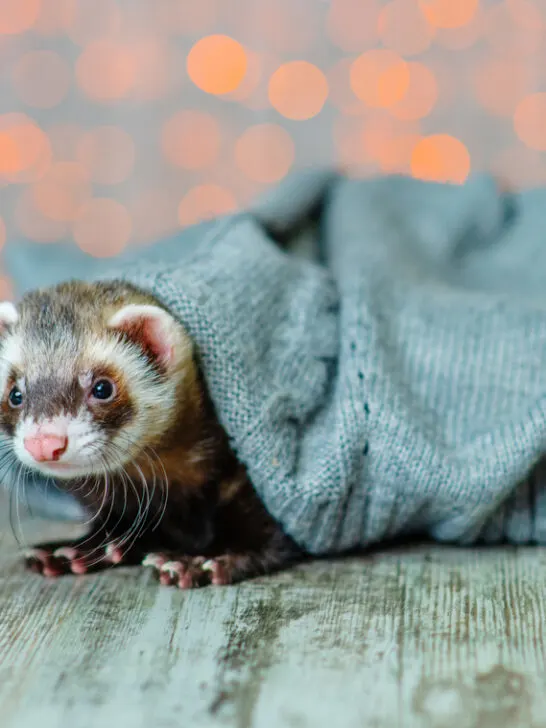

Leave a comment
You must be logged in to post a comment.